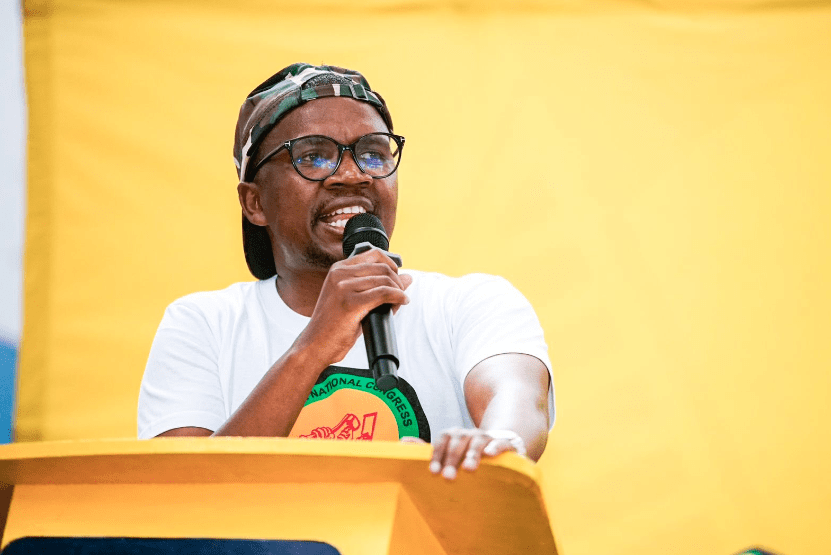James Verster, founder and Executive Director of BlueNova Energy.
An MBA trailblazer’s path to sustainable energy solutions
From a defence engineer to the C-suite and now a trailblazer in the energy storage sector, James Verster has seamlessly blended his technical expertise with strategic business acumen. As the founder and Executive Director of BlueNova Energy, Verster says the lessons learned during his Executive MBA (EMBA) degree in the early 2000s remain with him today, equipping him with the skills — and the mindset — needed to stay relevant and competitive in an ever-changing world.
During this time, he not only honed his leadership skills but also unlocked new avenues for innovation, setting the stage for remarkable contributions to South Africa’s energy sector.
Verster’s professional journey began in 1988 when he qualified as an engineer. His early career was rooted in the defence electronics sector, where he specialised in radar systems development at Reutech Radar Systems, part of the Reunert group. His technical expertise and leadership skills quickly propelled him through the ranks. By 2002, Verster had transitioned from roles in project management and heading business development and marketing to being appointed the CEO of Reutech Radar Systems — a position he held for five years.
Aligning passion and purpose
It was this that inspired him to further his studies. “My motivation was driven by a clear career objective within the Reunert group,” he recalls. “To progress in this technically complex and leadership-oriented environment, I needed to demonstrate a blend of engineering expertise and managerial acumen.”
He says the programme was perfectly aligned with his aspirations. “The draw and prestige of the UCT Executive MBA programme lay in its ability to transform individuals, instilling in them the essential qualities required to lead organisations effectively,” he says. “The programme was meticulously designed to enhance abilities across various learning domains, particularly in developing a systematic approach to business thinking.”
Developing sustainable business models was another critical competency that he acquired. This involved enhancing strategic management and leadership capabilities, encouraging reflection, and applying theoretical concepts to promote sustainable business practices. The programme enabled Verster to integrate academic learning with his existing management experience, allowing for practical application during the study phase.
But Verster’s MBA journey didn’t just equip him with technical knowledge; it also broadened his perspective to encompass the societal impact of business practices.
“The concept of managing for societal value was strongly emphasised, expanding my outlook beyond the organisational scope to include the broader socioeconomic context in which a business operates,” he explains, adding that the programme’s comprehensive take on economics, finance, globalisation and entrepreneurship provided him with a unified framework for creating sustainable value.
“This approach not only considers the short-term strategic outlook but also extends into the normative domain, anticipating impacts and requirements over a 20-year horizon and beyond.”
Beyond the classroom
One of the most tangible examples of the MBA’s impact on Verster’s career was the development of the Mine Slope Stability Radar, a ground-breaking innovation that significantly enhanced safety in the mining industry globally. This project was born from connections and introductions made through his EMBA network, underscoring the real-world value of the extensive relationships fostered by the programme.
Additionally, the focus on managing for customer value instilled in him the skills to optimise operations, ensuring that products and services consistently met and exceeded customer expectations.
Verster says that overall, the training instilled in him the ability to tackle unconventional challenges and devise comprehensive solutions: “MBA students experience significant developments in their personalities, leadership styles and cognitive complexities. It encourages students to think creatively, extend their ambitions beyond apparent limits, and leads diverse teams through complex challenges. These capabilities are highly esteemed by industry leaders, who recognise that MBA graduates possess the essential qualities required to lead organisations effectively.”
An ongoing return on investment
Today, as the founder and executive director of BlueNova Energy, Verster continues to apply the lessons learned from his MBA in his pursuit of innovative energy storage solutions across residential, commercial and industrial sectors: “The MBA prepared me as a leader to inspire teams, creating a workplace where new ideas are welcomed and the risks associated with innovation are well-managed. It provided tools to assess investments and secure funding for new projects, ensuring that the innovative ideas are both practical and aligned with business goals. This has led to the design of innovative products that meet real-world demands and stand out in the market.”
He says the systems-thinking approach instilled in him through his participation in the programme has had a significant impact on his operations, enabling a comprehensive view of how different parts of a business interact. “By viewing the energy storage sector as a complex system of technologies, regulations, market demands and competitive forces, strategic leverage points have been identified where small changes yielded significant impacts,” he says.
This approach has helped anticipate how changes in one area affect others, leading to more effective strategic positioning. “With system thinking, strategies were created that adapted to current market conditions and anticipated future trends and disruptions, giving the business a competitive advantage,” Verster explains. “Learning about global markets helped set benchmarks against international standards and adopting new technologies, encouraging local innovation to meet global challenges in energy storage.”
From understanding data, technological advancements, market trends and customer needs to effective financial management and strategic positioning, the skills acquired during his MBA have been instrumental in driving BlueNova Energy’s success — and its impact on South Africa’s energy sector — paving the way for a more sustainable and efficient future.





















Discussion about this post